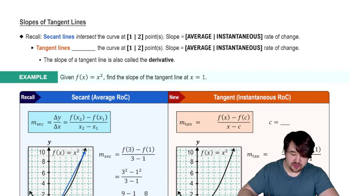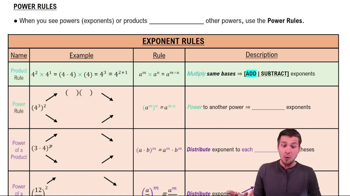Assume lim x→1 f(x)=8,lim x→1 g(x)=3, and lim x→1 h(x)=2 Compute the following limits and state the limit laws used to justify your computations.
lim x→1 f(x) / g(x)−h(x)
 Verified step by step guidance
Verified step by step guidance Verified video answer for a similar problem:
Verified video answer for a similar problem:



 5:21m
5:21mMaster Finding Limits by Direct Substitution with a bite sized video explanation from Patrick
Start learning